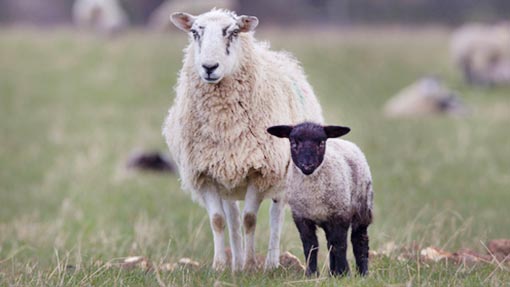Livestock Event 2014: Sheep pain threshold set in early life

A sheep that experienced pain shortly after it was born is more likely to show pain-related behaviour when giving birth to its own first lambs, researchers have discovered.
A study led by academics from the University of Bristol’s School of Veterinary Sciences and published in the Royal Society journal Biology Letters investigated whether early-life experiences can alter behavioural responses to a naturally painful event in adulthood – such as giving birth – and also affect behaviour of the next generation.
See more from the 2014 Livestock Event
The research team found that female sheep which had their tails docked or experienced a mild simulated infection in the first three to four days of life, experienced more painful births than ewes who had not had these early-life experiences.
It is thought this is because ewes who had an infection or tissue damage in early life may be more sensitive to painful stimuli.
Researchers also found the lambs of those mothers who had experienced a mild infection in early life were less sensitive to pain during the first few days of their lives than were other lambs.
Mike Mendl, professor of animal behaviour and welfare in the school of veterinary sciences, said: “Our study suggests that infection and tail-docking during the first few days of life may have long-term effects on an individual’s development and behaviour, and on that of her own offspring.
“Further work is needed to establish the robustness of these findings, to identify potential underlying mechanisms, and to help inform husbandry practices to enhance animal health and welfare.”
The work was funded at the University of Bristol by the Biotechnology and Biological Sciences Research Council (BBSRC).
